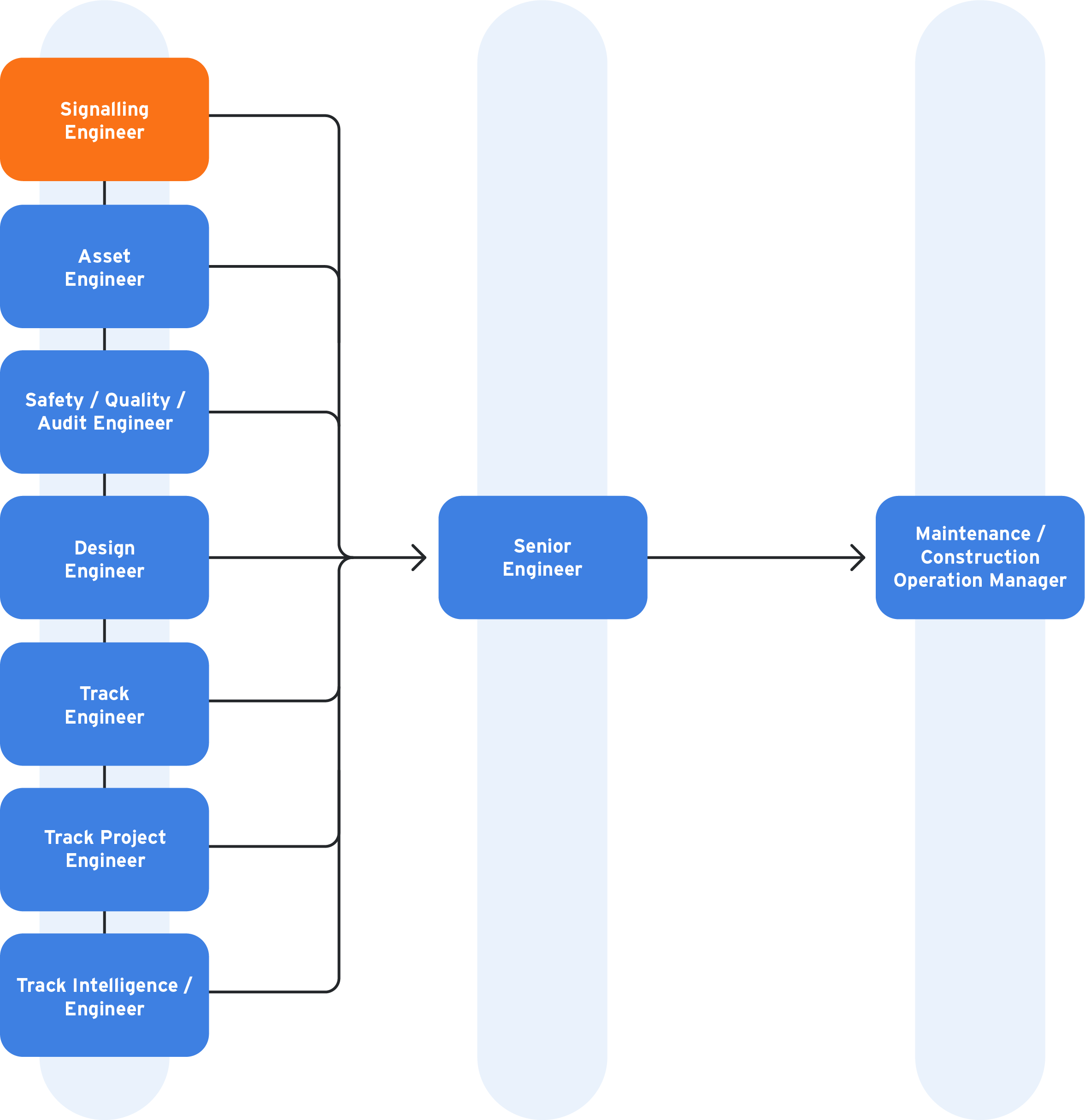
The role
Tasks include:
• designing signalling systems
• preparing conceptual design and reports
• assisting with project planning and new project bids
• overseeing maintenance plans and operational studies
• participating in design reviews in a team environment.

Skills required to be a Rail Signalling Engineer
- Ability to plan
- Risk management
- Asset management
- Frontline leadership
Previous experience
Rail Signalling Engineers usually come from a career as an engineer or electrician. Many worked in:
- construction, defence or resources sectors
- electrical supply industry.
Minimum requirements
Minimum qualification for the role is usually a Bachelor or Masters of Engineering (Electrical, Computer Systems or similar).
However, it may be possible to become a rail signalling engineer with a Certificate IV in Electrical - Rail Signalling and relevant industry experience.
Further study to enhance opportunities can include:
- Diploma of Railway Signalling Systems 22458VIC
- Graduate Certificate in Railway Signalling Systems 22596VIC
- Graduate Diploma of Railway Signalling 10780NAT
- Graduate Diploma of Railway Signalling Systems 22593VIC.
(Requirements vary between systems, talk to your rail infrastructure manager or rail operator for specific information relating to their workplace.)
What a Rail Signalling Engineer's career progression can look like
Rail signalling engineers may look to advance their career through roles as asset engineer, design engineer and construction operations manager.

What do I do next?
For more information on becoming a Rail Signalling Engineer:
- check out the Work in Rail website
- talk to your careers adviser
- get in touch with your industry body or union
- contact your local TAFE or university
- if you already work in rail, talk to your employer.
Meet the people

Meet Bryan Lai, an Interface and Integration Manager with Downer.
After studying electrical and computer system engineering at Monash University, Bryan began his career as a Signalling Engineer at Connex. Today he's responsible for integrating different signalling and communications systems so trains run safely and seamlessly across the networks.
"If I were to name the three best things about rail it would the opportunity to work with different people from different disciplines, the chance to travel and work on jobs in fairly remote locations and the very competitive salary.”
Read more about Bryan's career here.
If you have great job in rail, get in touch.
